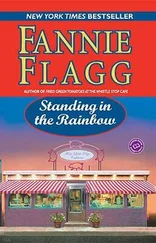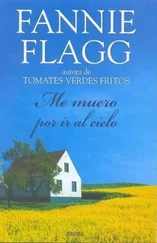Fannie Eckstorm - The Woodpeckers
Здесь есть возможность читать онлайн «Fannie Eckstorm - The Woodpeckers» — ознакомительный отрывок электронной книги совершенно бесплатно, а после прочтения отрывка купить полную версию. В некоторых случаях можно слушать аудио, скачать через торрент в формате fb2 и присутствует краткое содержание. Жанр: Природа и животные, foreign_antique, foreign_prose, на английском языке. Описание произведения, (предисловие) а так же отзывы посетителей доступны на портале библиотеки ЛибКат.
- Название:The Woodpeckers
- Автор:
- Жанр:
- Год:неизвестен
- ISBN:нет данных
- Рейтинг книги:3 / 5. Голосов: 1
-
Избранное:Добавить в избранное
- Отзывы:
-
Ваша оценка:
- 60
- 1
- 2
- 3
- 4
- 5
The Woodpeckers: краткое содержание, описание и аннотация
Предлагаем к чтению аннотацию, описание, краткое содержание или предисловие (зависит от того, что написал сам автор книги «The Woodpeckers»). Если вы не нашли необходимую информацию о книге — напишите в комментариях, мы постараемся отыскать её.
The Woodpeckers — читать онлайн ознакомительный отрывок
Ниже представлен текст книги, разбитый по страницам. Система сохранения места последней прочитанной страницы, позволяет с удобством читать онлайн бесплатно книгу «The Woodpeckers», без необходимости каждый раз заново искать на чём Вы остановились. Поставьте закладку, и сможете в любой момент перейти на страницу, на которой закончили чтение.
Интервал:
Закладка:
If the size and shape of the doorway suit him, the woodpecker scales off the bark inside his circle of holes and begins his hard work. He seems to take off his coat and work in his shirtsleeves, so vigorously does he labor as he clings with his stout toes, braced in position by his pointed tail. The chips fly out past him, or if they lie in the hole, he sweeps them out with his bill and pelts again at the same place. The pair take turns at the work. Who knows how long they work before resting? Do they take turns of equal length? Does one work more than the other? A pair of flickers will dig about two inches in a day, the hole being nearly two and a half inches in diameter. A week or more is consumed in digging the nest, which, among the flickers, is commonly from ten to eighteen inches deep. The hole usually runs in horizontally for a few inches and then curves down, ending in a chamber large enough to make a comfortable nest for the mother and her babies.
What a good time the little ones have in their hole! Rain and frost cannot chill them; no enemy but the red squirrel is likely to disturb them. There they lie in their warm, dark chamber, looking up at the ray of light that comes in the doorway, until at last they hear the scratching of their mother’s feet as she alights on the outside of the tree and clambers up to feed them. What a piping and calling they raise inside the hole, and how they all scramble up the walls of their chamber and thrust out their beaks to be fed, till the old tree looks as if it were blossoming with little woodpeckers’ hungry mouths!
V
HOW A FLICKER FEEDS HER YOUNG 1 1 Based upon the observations of Mr. William Brewster.
As the house of the woodpecker has no windows and the old bird very nearly fills the doorway when she comes home, it is hard to find out just how she feeds her little ones. But one of our best naturalists has had the opportunity to observe it, and has told what he saw.
A flicker had built a nest in the trunk of a rather small dead tree which, after the eggs were hatched, was accidentally broken off just at the entrance hole. This left the whole cavity exposed to the weather; but it was too late to desert the nest, and impossible to remove the young birds to another nest.
When first visited, the five little birds were blind, naked, and helpless. They were motherless, too. Some one must have killed their pretty mother; for she never came to feed them, and the father was taking all the care of his little family. When disturbed the little birds hissed like snakes, as is the habit of the callow young of woodpeckers, chickadees, and other birds nesting habitually in holes in trees. When they were older and their eyes were open, they made a clatter much like the noise of a mowing-machine, and loud enough to be heard thirty yards away.
The father came at intervals of from twenty to sixty minutes to feed the little ones. He was very shy, and came so quietly that he would be first seen when he alighted close by with a low little laugh or a subdued but anxious call to the young. “Here I am again!” he laughed; or “Are you all right, children?” he called to them. “All right!” they would answer, clattering in concert like a two-horse mower.
As soon as they heard him scratching on the tree-trunk, up they would all clamber to the edge of the nest and hold out their gaping mouths to be fed. Each one was anxious to be fed first, because there never was enough to go round. There was always one that, like the little pig of the nursery tale, “got none.” When he came to the nest, the father would look around a moment, trying to choose the one he wanted to feed first. Did he always pick out the poor little one that had none the time before, I wonder?
After the old bird had made his choice, he would bend over the little bird and drive his long bill down the youngster’s throat as if to run it through him. Then the little bird would catch hold as tightly as he could and hang on while his father jerked him up and down for a second or a second and a half with great rapidity. What was he doing? He was pumping food from his own stomach into the little one’s. Many birds feed their young in this way. They do not hold the food in their own mouths, but swallow and perhaps partially digest it, so that it shall be fit for the tender little stomachs.
While the woodpecker was pumping in this manner his motions were much the same as when he drummed, but his tail twitched as rapidly as his head and his wings quivered. The motion seemed to shake his whole body.
In two weeks from the time when the little birds were blind, naked, helpless nestlings they became fully feathered and full grown, able to climb up to the top of the nest, from which they looked out with curiosity and interest. At any noise they would slip silently back. A day or two later they left the old nest and began their journeys.
VI
FRIEND DOWNY
No better little bird comes to our orchards than our friend the downy woodpecker. He is the smallest and one of the most sociable of our woodpeckers, – a little, spotted, black-and-white fellow, precisely like his larger cousin the hairy, except in having the outer tail-feathers barred instead of plain. Nearly everything that can be said of one is equally true of the other on a smaller scale. They look alike, they act alike, and their nests and eggs are alike in everything but size.
Downy is the most industrious of birds. He is seldom idle and never in mischief. As he does not fear men, but likes to live in orchards and in the neighborhood of fields, he is a good friend to us. On the farm he installs himself as Inspector of Apple-trees. It is an old and an honorable profession among birds. The pay is small, consisting only of what can be picked up, but, as cultivated trees are so infested with insects that food is always plentiful, and as they have usually a dead branch suitable to nest in, Downy asks no more. Summer and winter he works on our orchards. At sunrise he begins, and he patrols the branches till sunset. He taps on the trunks to see whether he can hear any rascally borers inside. He inspects every tree carefully in a thorough and systematic way, beginning low down and following up with a peek into every crevice and a tap upon every spot that looks suspicious. If he sees anything which ought not to be there, he removes it at once.
A moth had laid her eggs in a crack in the bark, expecting to hatch out a fine brood of caterpillars: but Downy ate them all, thus saving a whole branch from being overrun with caterpillars and left fruitless, leafless, and dying. A beetle had just deposited her eggs here. Downy saw her, and took not only the eggs but the beetle herself. Those eggs would have hatched into boring larvæ, which would have girdled and killed some of the branches, or have burrowed under the bark, causing it to fall off, or have bored into the wood and, perhaps, have killed the tree. Nor is the full-grown borer exempt. Downy hears him, pecks a few strokes, and harpoons him with unerring aim. When Downy has made an arrest in this way, the prisoner does not escape from the police. Here is a colony of ants, running up the tree in one line and down in another, touching each other with their feelers as they pass. A feast for our friend! He takes both columns, and leaves none to tell the tale. This is a good deed, too, since ants are of no benefit to fruit-trees and are very fond of the dead-ripe fruit.
And Downy is never too busy to listen for borers. They are fine plump morsels much to his taste, not so sour as ants, nor so hard-shelled as beetles, nor so insipid as insects’ eggs. A good borer is his preferred dainty. The work he does in catching borers is of incalculable benefit, for no other bird can take his place. The warblers, the vireos, and some other birds in summer, the chickadees and nuthatches all the year round, are helping to eat up the eggs and insects that lie near the surface, but the only birds equipped for digging deep under the bark and dragging forth the refractory grubs are the woodpeckers.
Читать дальшеИнтервал:
Закладка:
Похожие книги на «The Woodpeckers»
Представляем Вашему вниманию похожие книги на «The Woodpeckers» списком для выбора. Мы отобрали схожую по названию и смыслу литературу в надежде предоставить читателям больше вариантов отыскать новые, интересные, ещё непрочитанные произведения.
Обсуждение, отзывы о книге «The Woodpeckers» и просто собственные мнения читателей. Оставьте ваши комментарии, напишите, что Вы думаете о произведении, его смысле или главных героях. Укажите что конкретно понравилось, а что нет, и почему Вы так считаете.












